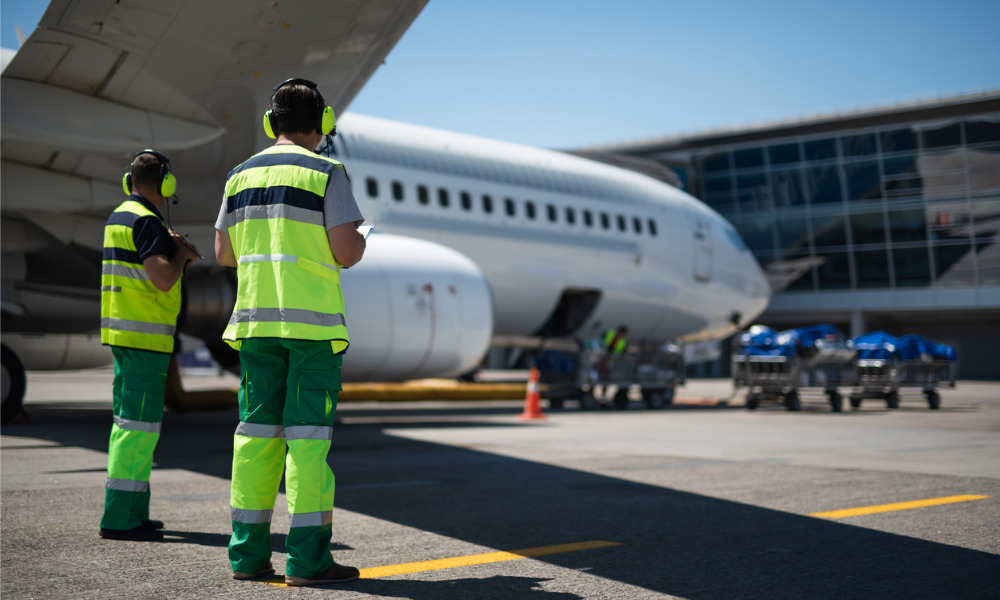
Brisbane-based company is believed to be the first to introduce a mandatory policy

A Brisbane-based airline appears to have become the first to impose a mandatory vaccination policy, saying any staff who refuse the COVID-19 jab may face disciplinary action.
Alliance Aviation confirmed it would be rolling out its immunisation policy which requires all workers, including contractors and their employees working at the airline’s sites, to be vaccinated against both flu and COVID-19. If they refuse, an initial risk assessment process will be carried out surrounding their role. If they continue to refuse the workplace direction, and do not have a valid legal or medical reason, then the policy states “appropriate disciplinary action may be taken”.
Speaking to The Australian, Alliance managing director Scott McMillan said more than 95% of employees have been supportive of the new policy.
“Right throughout the industry there’s a big move towards people being vaccinated. All the senior management and directors have been vaccinated and we believe the way forward is for all of us to be vaccinated,” he said.
The airline, which predominantly operates routes between mining areas, is thought to be the first in the aviation industry to impose a mandatory policy. Much larger employers like Qantas and Virgin Australia have strongly encouraged staff to be vaccinated but have stopped short of enforcing the jab.
Read more: COVID-19 vaccine: How employers can reduce hesitancy among staff
McMillan said the company has sought legal advice on the policy and so far, around half of Alliance’s 700-strong workforce had received their first dose. He said the company’s board of directors believed that Alliance has an obligation to provide a safe workplace for all staff and vaccinations are a key part of that.
However, the Australian Federation of Air Pilots said it has communicated its concerns about a mandatory policy to the company and highlighted the Fair Work Ombudsman’s guidance which states the majority of employers will not be able to force staff to be vaccinated.
“The Australian Federation of Air Pilots is very much in favour of vaccination and encourages everyone to get vaccinated,” a spokesman for the AFAP told HRD. “But making the Covid-19 vaccine a condition of employment is potentially problematic. It is not yet clear to us whether, and in what circumstances, aviation employers can make Covid-19 vaccinations mandatory.”
So far in Australia, employers have been treading carefully on imposing vaccinations – especially after the bungled rollout of the AstraZeneca jab.
Speaking to HRD, workplace expert Maureen Kyne said the big question around mandatory policies is whether being vaccinated is an inherent requirement of the job.
“This could end up being a test case and lead the way for other industries to begin imposing mandatory policies,” she said. “In the coming months I think there’ll be a lot of discussion around it but I still think bringing in a mandate at your workplace is a bit like stepping into a minefield.”
She believes health departments at the state and federal level need to be responsible for mandating vaccines, if Australia is to go down that route. For employers, forcing jabs upon staff and in the most extreme cases, terminating those who fail to comply, poses real risks of unfair dismissal and discrimination claims.
“In future, it’s likely people will challenge mandatory vaccination directions, either for medical reasons or because they are against vaccinations, so employers could end up with some really hefty discrimination claims going on,” Kyne said.
Read more: Fair Work Commission gives go ahead for vaccine refusal case
While employers can make a direction for workers to be vaccinated – some businesses in the agedcare industries already have mandatory policies for the flu jab – it must be lawful and reasonable. It has created a grey area for industries like aviation around what constitutes a reasonable direction, and so far, there have been no test cases involving the Covid vaccine dealt with by the Fair Work Commission (FWC).
In April, a childcare worker who was sacked after refusing the flu vaccine lost her bid for an unfair dismissal claim before the FWC. The Commission supported the childcare provider’s policy for all employees to be vaccinated, and some have argued the case could be used as a backbone for employers considering a mandatory policy for the Covid vaccine.
But employment lawyers are quick to point out that the ruling is specific to the facts of the case and the Covid vaccine poses more complex issues such as the lack of availability and the risk of blood clots associated with the AstraZeneca jab. Regardless, employers across the country are watching with anticipation as organisations navigate the tricky path out of the pandemic.